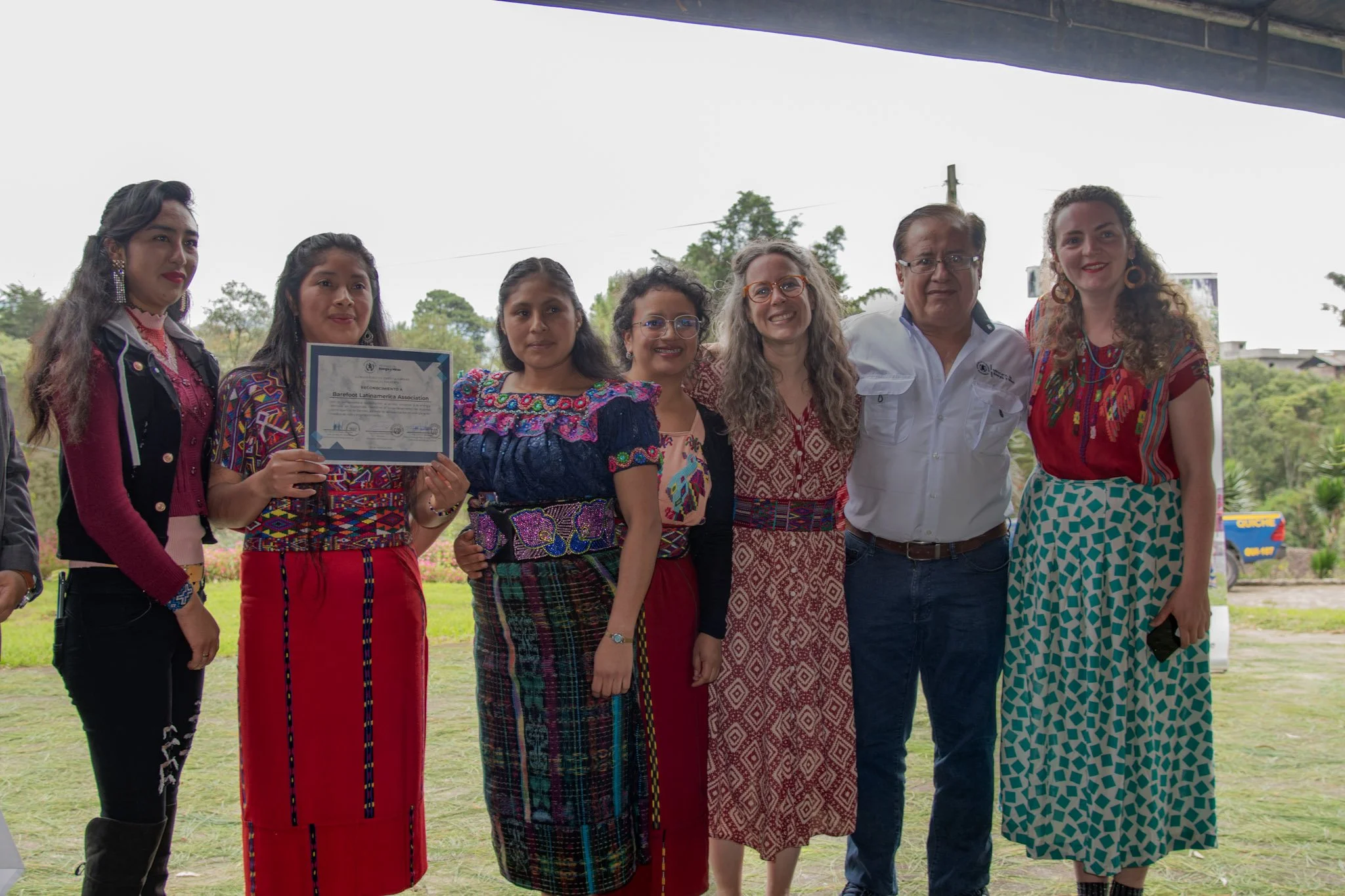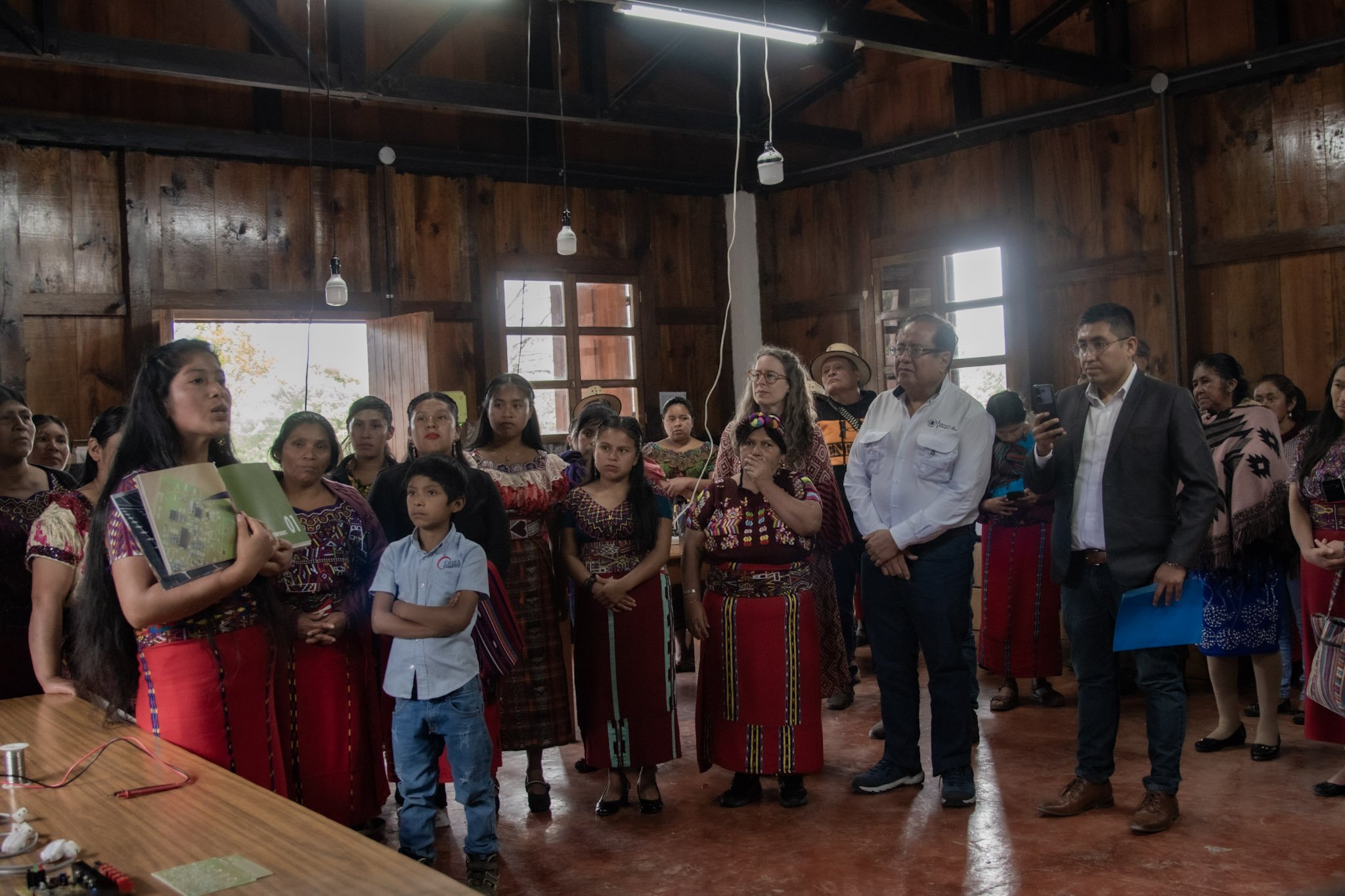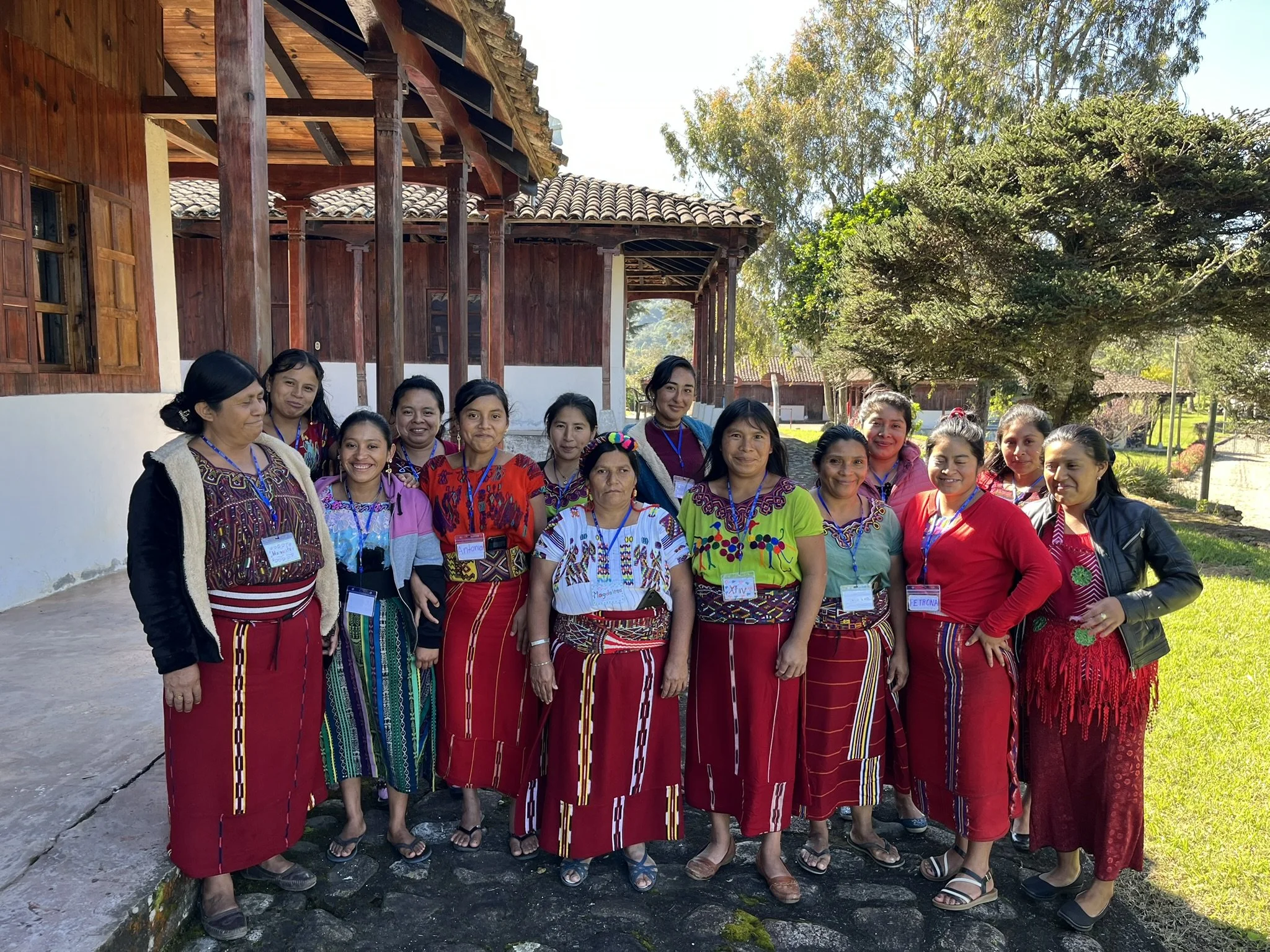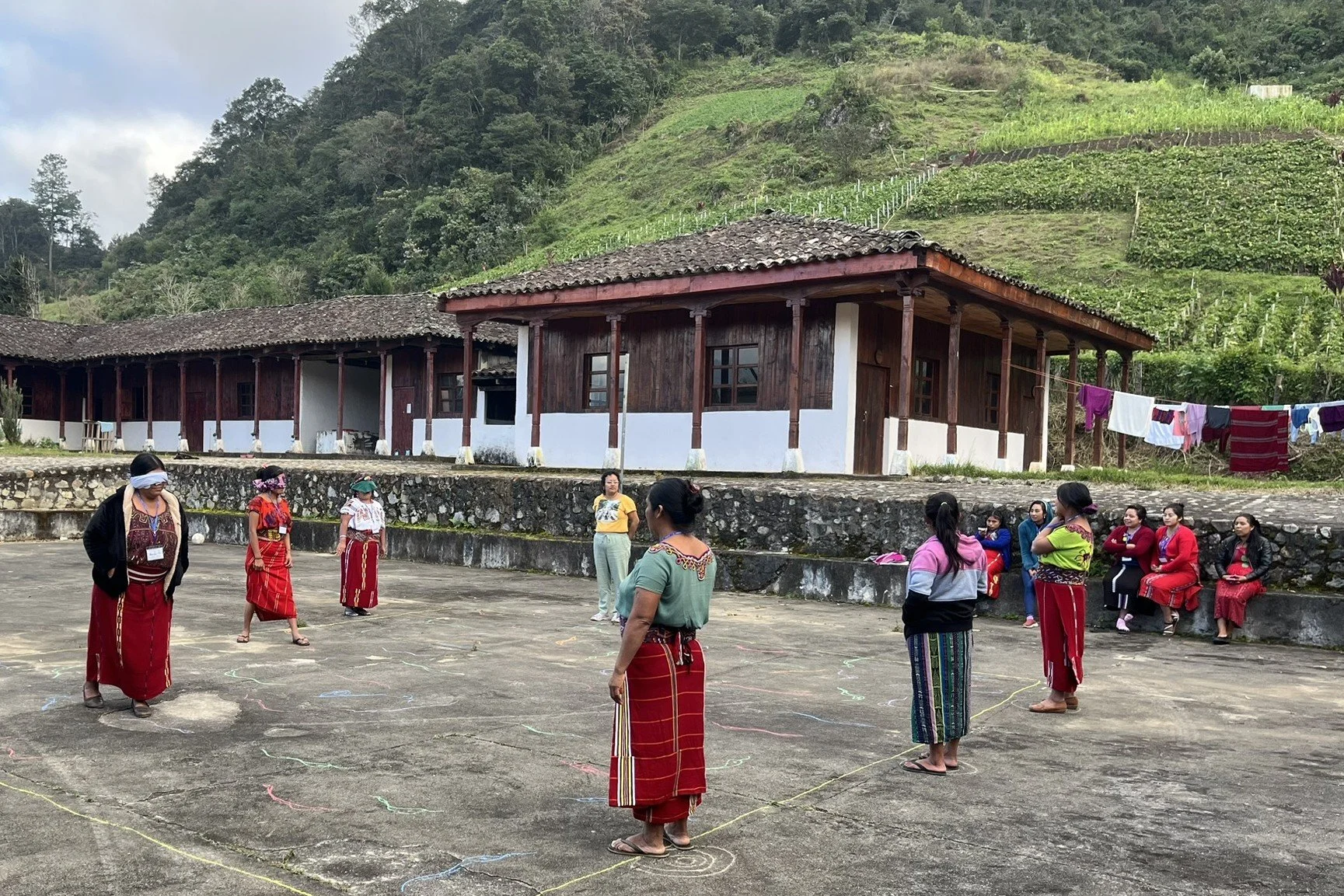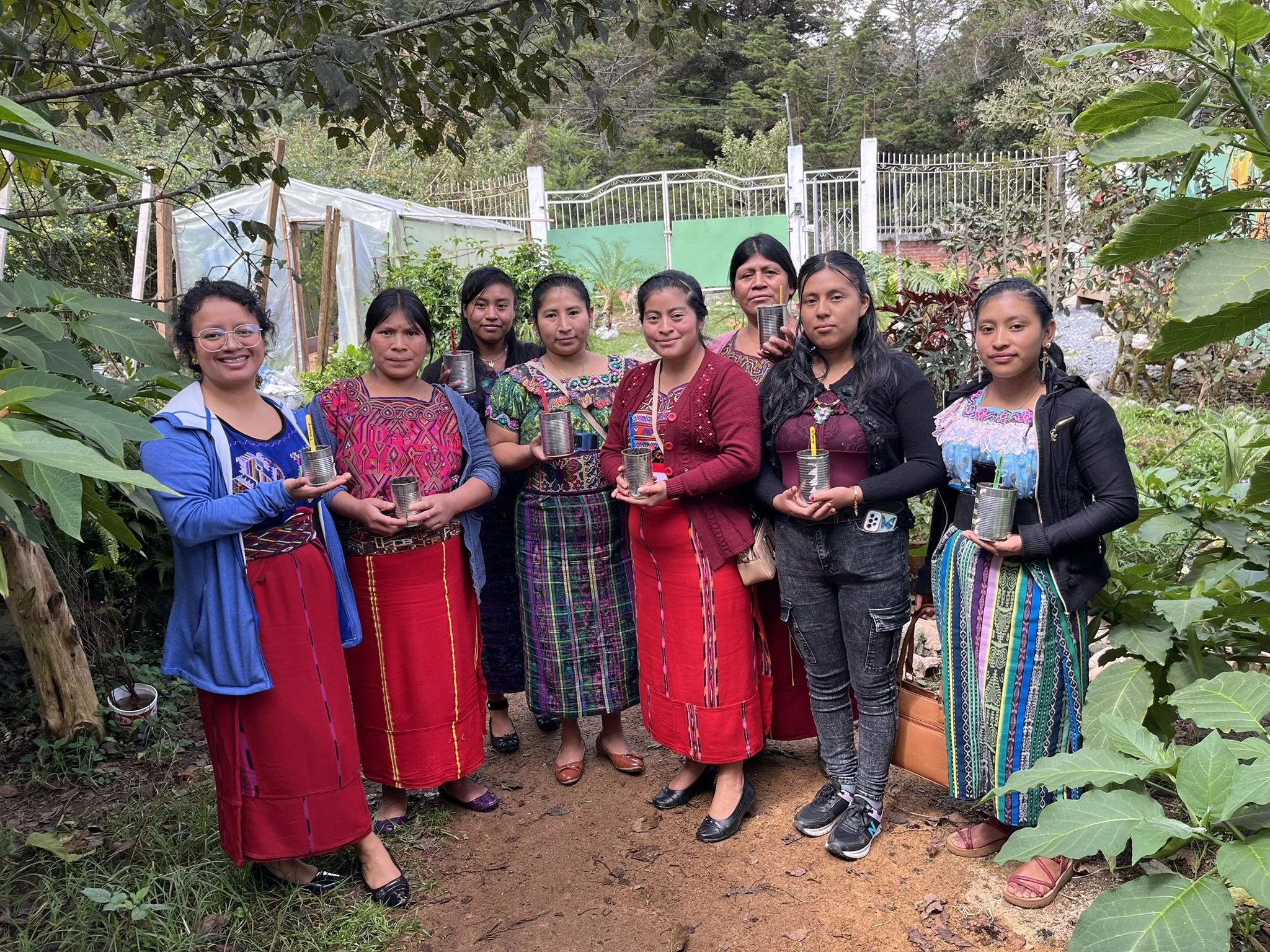Last month, we were delighted to welcome 12 neighbours to our training centre campus in Batzul, Chajul to take part in an organic agriculture workshop.
During the workshop, we discussed organic and ancestral practices for the staple crop of our region, corn. We talked about the milpa system, which plants corn, bean and squash together, with each plant helping the other to grow and thrive.
We are inspired by the teachings of indigenous elders, who have carried the ancestral ways of farming and living in harmony with the land for generations.
As Robin Wall Kimmerer writes in her book, Braiding Sweetgrass:
“Together these plants— corn, beans, and squash—feed the people, feed the land, and feed our imaginations, telling us how we might live. For millennia, from Mexico to Montana, women have mounded up the earth and laid these three seeds in the ground, all in the same square foot of soil. Together their stems inscribe what looks to me like a blueprint for the world, a map of balance and harmony.”
The corn stands tall for the bean plant to wind around and add its nitrogen-fixing root nodules to the soil. The broad squash leaves ensure shade over the soil and, together, each plant contributes to a nutritious meal which includes starch, protein and vitamins. Robin Wall Kimmerer calls this ancestral agricultural system, “a metaphor for coexistence and mutual flourishing.”
During our workshop, after sharing knowledge and exchanging experiences, we went into the garden to plant a native black corn variety with organic compost and natural fertiliser. With the guidance of our Head Gardener, José, the workshop participants learned more about nature-friendly ways to look after these important crops as well as looking after the land.
“When we plant with organic methods, we don’t get sick from artificial chemicals and the land recovers too.”
- José, Head Gardener
At the end of the workshop, the women took home native seed varieties and sweet potato cuttings from the garden. We are looking forward to welcoming them back next month for a workshop on natural insecticides to help prevent blights and pests in their crops.
Together, we can continue to promote healthy agricultural practices that contribute to the mutual flourishing of our communities and our planet.




